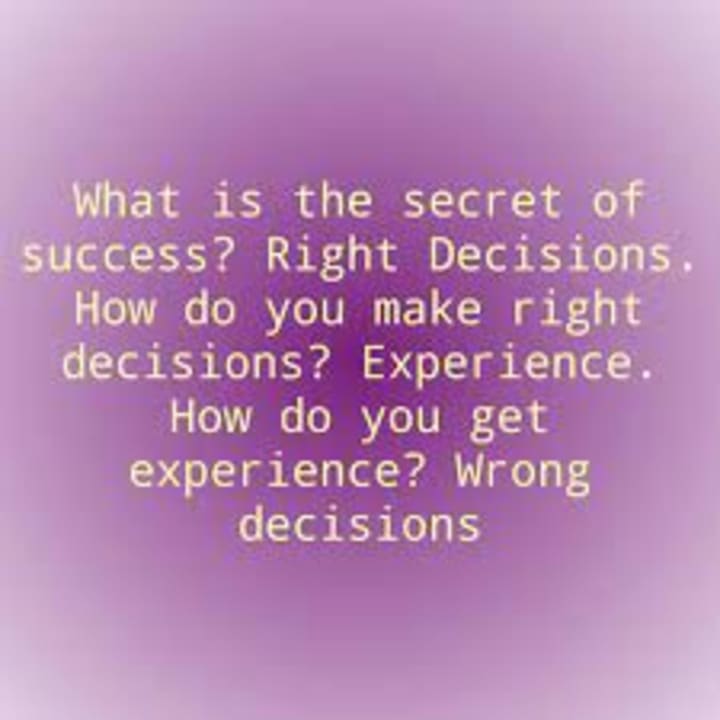The Psychology of Decision-Making
How to Make Better Choices

Table of contents
- Introduction
- The Science of Decision-Making
- Factors That Affect Decision-Making
- Strategies for Better Decision-Making
- The Art of Decision-Making
- Conclusion
1. Introduction
Welcome to the world where decision-making is no less than solving a Rubik's cube; one wrong move and it's game over. Making the right decision is crucial in our daily lives, from what to wear to which career path to choose. Poor decision-making can lead us down the wrong path, costing us in time, money, and even relationships. So how can we master the art of decision-making? Let's dive into the psychology of it all and find out.
2. The Science of Decision-Making
We like to believe that we make rational decisions based on careful evaluation of options and their potential outcomes, but the science of decision-making says otherwise. In reality, our decisions are heavily influenced by various factors such as emotions, biases, and social pressure. Understanding the psychology behind decision-making can help us make better choices. Decision-making processes can be broadly categorized into two types: intuitive and deliberate. While intuitive decision-making is fast and based on gut feelings, deliberate decision-making is a more thorough and analytical approach. Both have their advantages and disadvantages, and it's important to recognize which type of decision-making process is appropriate in a particular situation. Knowing how decisions are made and the types of decision-making processes available, we can now delve into the factors that affect decision-making.
3. Factors That Affect Decision-Making
Ever wondered why you make certain decisions and not others? Your emotional state, cognitive biases, environment, and social pressure all play a role in the choices you make. Your emotions can cloud your judgment, leading to impulsive decisions. Cognitive biases, such as confirmation biases and sunk cost fallacy, can lead you to make decisions based on incomplete or flawed information. Your environment can influence your decision-making by providing either too many or too few options. Lastly, social pressure can push you to make decisions you may not agree with. Understand the factors that affect your decision-making to make better choices.
4. Strategies for Better Decision-Making
Let's talk about the key strategies that can help you make better decisions in life. First and foremost, gather as much information as possible about the situation. The more knowledge you have, the better equipped you are to make an informed decision. Next, weigh your options. Look at the pros and cons of each choice and evaluate them based on your personal values and priorities. Then, consider the consequences of each option. What are the short-term and long-term outcomes of each decision? Finally, trust your instincts. Sometimes, your gut feeling can lead you in the right direction. By following these strategies, you can increase your chances of making better decisions and achieving success.
5. The Art of Decision-Making
Making decisions is an art that can be developed over time. Developing decision-making skills involves recognizing biases, finding balanced information, analyzing risks, and calculating rewards. Learning from mistakes is also an important aspect that allows us to embrace uncertainty. Don't be afraid to make mistakes; they might be just the push you need to make a better decision next time.
6. Conclusion
Decision-making is essential to daily life. Poor decision-making can significantly impact the course of our lives. Emotional state, cognitive biases, environment, and social pressure are all factors that influence decisions. Gathering information, weighing options, considering consequences, and trusting instincts are strategies for better decision-making. Developing skills, learning from mistakes, and embracing uncertainty are the keys to the art of decision-making.






Comments
There are no comments for this story
Be the first to respond and start the conversation.